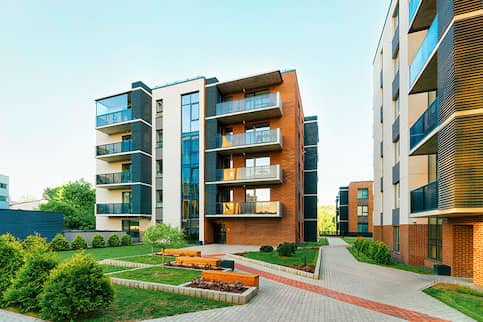Look into the Financial Aspects of HOA Condo Living
Look into the Financial Aspects of HOA Condo Living
Blog Article
The Duty of an HOA in Developing and Enforcing Community Standards for Residents
The role of a Homeowners Association (HOA) in applying and establishing neighborhood guidelines is basic to maintaining a orderly and natural household environment. By developing clear policies that control facets such as residential or commercial property maintenance and community conduct, the HOA not only sets standards for citizens but likewise cultivates a feeling of belonging and liability.
Comprehending Homeowners Associations
Homeowners associations (HOAs) offer as controling bodies for household areas, playing a critical function in keeping home worths and fostering a sense of area. Commonly developed by designers, HOAs are made up of house owners within a designated area that choose a board to look after the association's tasks. The key functions of an HOA include imposing community regulations, handling typical areas, and arranging neighborhood events.
HOAs run under a collection of governing files, including covenants, problems, and constraints (CC&R s), which detail the rights and responsibilities of house owners. These laws intend to make certain that homes are kept to a specific criterion, therefore shielding the visual allure and overall worth of the community. Furthermore, HOAs commonly gather dues from homeowners to fund upkeep, landscaping, and other social work.
The visibility of an HOA can significantly influence the living experience within an area (hoa condo). While some citizens value the structured environment and services given, others might locate certain policies restrictive. Balancing the interests of all homeowners is essential for an HOA to work effectively, making certain that it offers its designated purpose of boosting neighborhood living while valuing specific property owner legal rights
Establishing Area Guidelines

To begin, an HOA must perform studies or convene that permit citizens to voice their concerns and tips. This participatory process promotes a feeling of possession and boosts compliance. Next, the HOA board need to evaluate the responses to identify usual motifs and top priorities that necessitate formal inclusion in the guidelines.
It is additionally necessary to make sure that the guidelines are clear, succinct, and quickly comprehended. Ambiguities can bring about misunderstandings and conflicts, weakening the function of the guidelines. The standards need to be extensive, covering different aspects of community living, including residential property maintenance, noise levels, and use of typical locations.
Enforcement of Guidelines
Effective enforcement of community guidelines is crucial for keeping order and making certain that all residents abide by the established standards. An HOA should carry out an organized approach to apply these policies, which usually includes a mix of monitoring, interaction, and penalties for non-compliance.
First, routine examinations and neighborhood patrols can aid identify infractions, ensuring that policies are consistently applied throughout the neighborhood. This positive surveillance permits the HOA to deal with issues prior to they intensify, promoting a feeling of accountability among citizens.
2nd, clear interaction is crucial. Locals need to be informed of the guidelines and the treatments for reporting offenses. An open line of communication motivates citizens to voice problems and seek clarification on guidelines, which can improve conformity.

Finally, when violations happen, the HOA needs to impose consequences as outlined in the controling papers. By efficiently enforcing regulations, an HOA can cultivate an unified living atmosphere that reflects the cumulative values of its homeowners.
Advantages of HOA Regulations
Countless benefits arise from the implementation of HOA laws, which serve to enhance the top quality of life within a neighborhood. One primary benefit he said is the upkeep of residential or commercial property worths. By implementing standards for visual appeals and maintenance, HOAs make certain that homes and common locations remain eye-catching, promoting a preferable living environment that can cause increased building values with time.
Additionally, HOA regulations advertise consistency and uniformity within the community. This coherence in style and upkeep helps to develop a sense of belonging amongst homeowners, adding to neighborhood satisfaction and a positive environment. Furthermore, established standards help with dispute resolution amongst neighbors by offering clear assumptions and methods for actions, thus lessening disputes.
Another significant benefit is the arrangement of shared features and solutions. Several HOAs manage community facilities such as clubs, swimming pools, and parks, which boost entertainment possibilities for homeowners. These facilities not just enhance the high quality of life however also encourage social interaction.
Ultimately, the regulations stated by an HOA cultivate a well-organized, unified area, ensuring that homeowners enjoy a high criterion of living while cultivating a helpful atmosphere for all home owners.
Typical Difficulties Faced by HOAs
In the middle of the advantages that property owners organizations (HOAs) can supply, they also run into a range of obstacles that can impede their effectiveness. Lots of property owners might not take part in conferences or neighborhood tasks, leading to a disconnect in between the HOA board and residents.
An additional challenge is the enforcement of laws and guidelines. Disagreements can occur when homeowners feel that enforcement is inconsistent or prejudiced, potentially causing problems within the neighborhood. In addition, HOAs commonly encounter monetary constraints, which can restrict their capacity to keep typical areas or fund neighborhood jobs. This can create discontentment among locals who anticipate high requirements of maintenance.
Moreover, browsing lawful complexities can be intimidating for HOAs. They need to make certain conformity with state regulations while managing their very own regulating papers, which can be a resource of complication. Transforming demographics and developing neighborhood needs require HOAs to adapt their guidelines, usually satisfying resistance from enduring citizens who are accustomed to typical norms. Dealing with these obstacles is crucial for fostering a growing and unified community.
Final Thought

By developing clear rules that govern aspects such as residential property upkeep and area conduct, the HOA not only sets criteria for homeowners but likewise promotes a feeling of belonging and responsibility.Homeowners organizations (HOAs) offer as regulating bodies for residential communities, playing an important role in preserving residential property worths and promoting a feeling of area. Numerous homeowners might not take part in meetings or neighborhood tasks, blog leading to a separate between the HOA board and citizens. Transforming demographics and advancing community needs call for HOAs to adapt their guidelines, often meeting resistance from long-standing homeowners who are accustomed to traditional standards. Via the advancement of clear guidelines and constant enforcement, HOAs advertise residential or commercial property upkeep, area satisfaction, and count on among homeowners.
Report this page